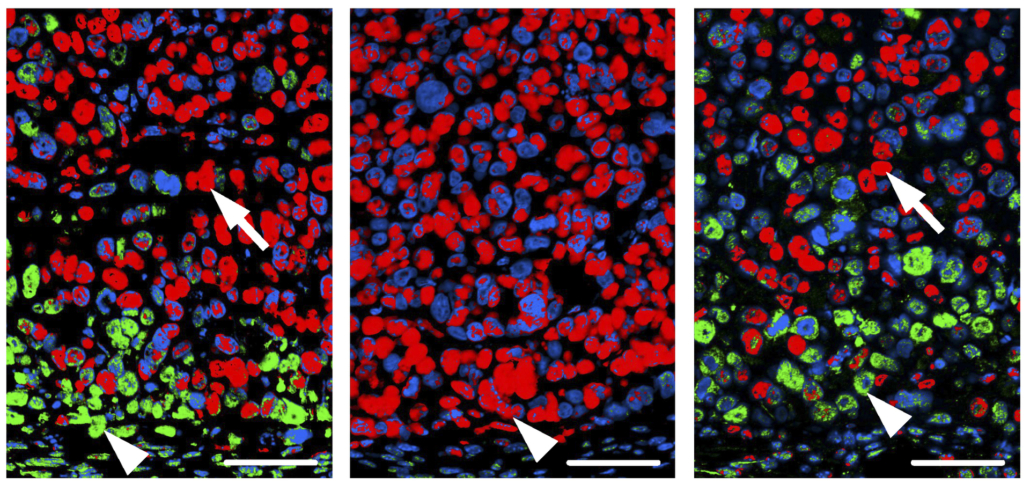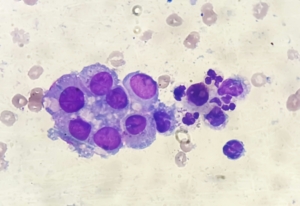
Cell type switch helps colon cancer evade treatment
Researchers at LMU Munich have unraveled a new strategy of colon cancers to evade targeted therapies.
The pathologists headed by David Horst from LMU Munich found colorectal carcinomas to be composed of two different cell types that replace each other when one cell type is killed: cells in which either the MAPK or the NOTCH signalling pathway is activated. Their results suggest that combination therapies targeting both cell types at once may be more effective at treating colorectal cancer postsurgically. Colorectal tumours are the third highest cause of cancer-related death in the United States.
The two different cell types could also be seen in tumours formed by human colon cancer cells injected into mice. The tumours quickly lost their MAPK-active cells when the researchers treated mice with the MAPK blocker selumetinib. However, the number of NOTCH-active cells increased so that there was minimal disruption to the tumours’ overall proliferation. Furthermore, after stopping selumetinib treatment, some of the NOTCH-active cells gave rise to new MAPK-active cells at the tumor edge.
In contrast, treatment with the NOTCH pathway inhibitor dibenzazepine eliminated NOTCH-active cells from tumours but the population of MAPK-active cells expanded and gave rise to new NOTCH-active cells once dibenzazepine treatment was discontinued.
"This suggests that colon cancers may evade targeted treatment against MAPK or NOTCH signaling by a reversible shift in the predominating pathway activity," says Horst. "However, when combining both therapies to target both cell populations, we found strong repressive effects on tumor cell proliferation and increased cell death, resulting in slower tumor growth and prolonged survival times compared to either treatment alone."
Lead author Eva Marina Schmidt and colleagues note that targeting the NOTCH pathway alone may even be detrimental to colon cancer patients, if it results in an increased number of MAPK-active cells poised to undergo metastasis.
Examining over 300 patient samples , the researchers found in human that the NOTCH pathway wasn’t activated in all colon cancer cells. Cells in the middle of tumors showed signs of active NOTCH signaling but reduced MAPK activity. This population of cells appeared to be highly proliferative. Cells at the edges of colon cancers, in contrast, showed high levels of MAPK signaling but little NOTCH pathway activity. This population of cells was less proliferative but appeared to be undergoing the initial stages of metastasis, in which colon cancer cells invade and spread to other tissues.
"Our data support a new concept for cancer therapy that advocates specific and simultaneous targeting of several different tumor cell subpopulations to strongly improve therapy response," says Horst. "Further preclinical and clinical trials may therefore reveal if combined MAPK and NOTCH inhibition, in addition to established chemotherapeutic protocols, can improve therapy response in patients with colorectal cancer."


 Unsplash+
Unsplash+
